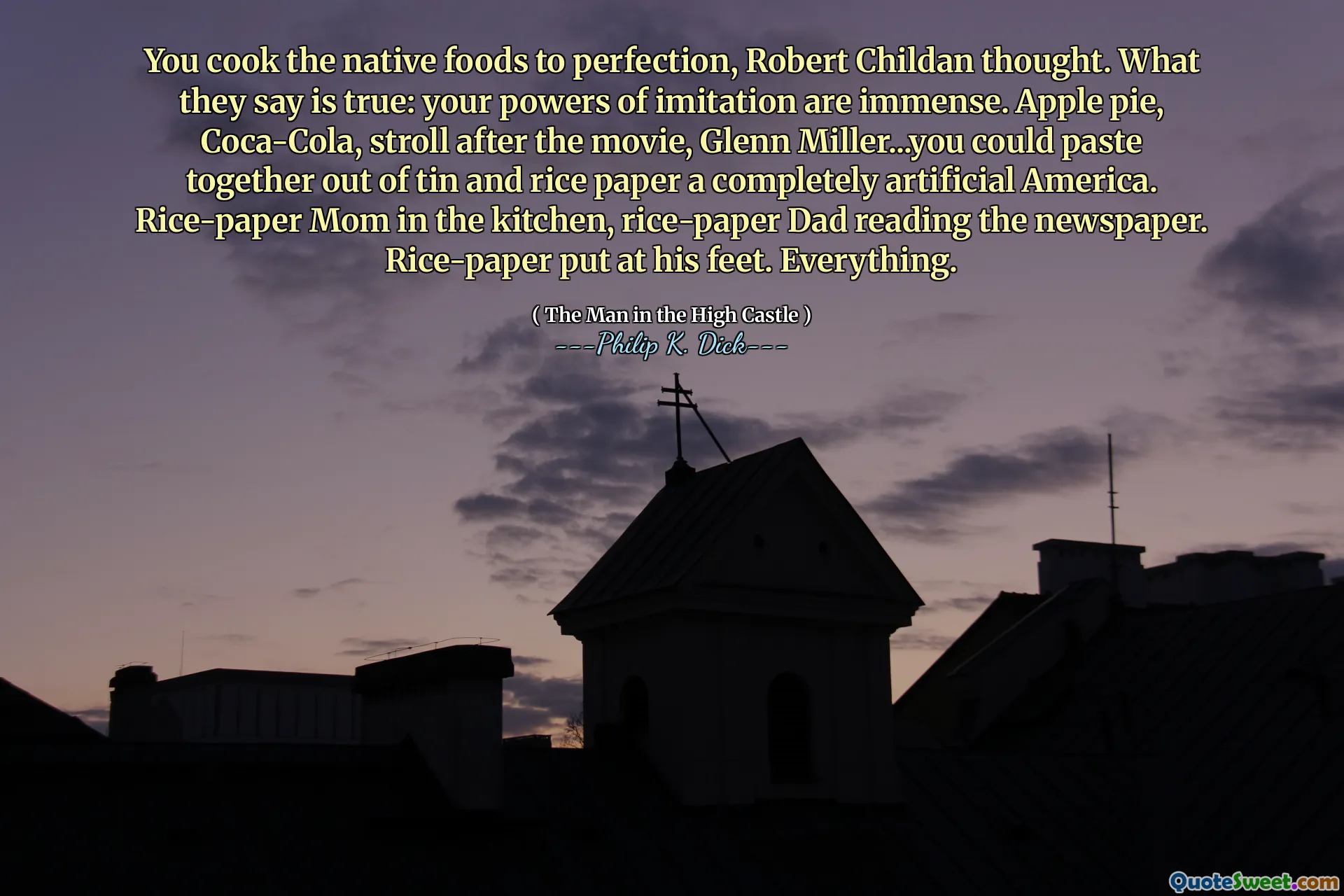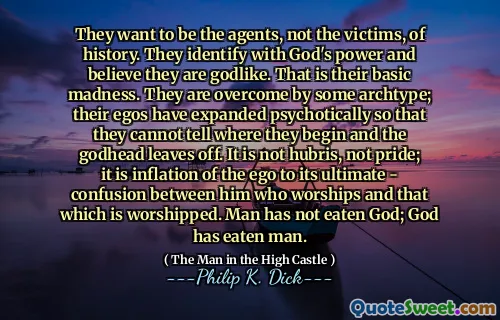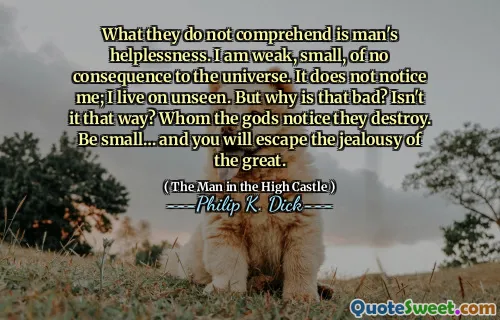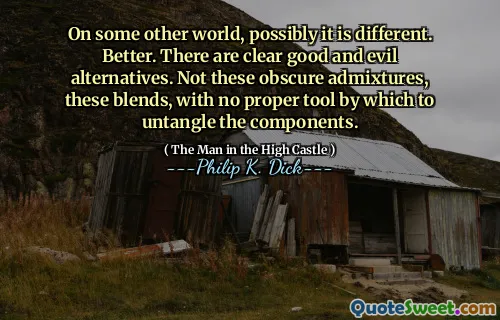
You cook the native foods to perfection, Robert Childan thought. What they say is true: your powers of imitation are immense. Apple pie, Coca-Cola, stroll after the movie, Glenn Miller...you could paste together out of tin and rice paper a completely artificial America. Rice-paper Mom in the kitchen, rice-paper Dad reading the newspaper. Rice-paper put at his feet. Everything.
In Philip K. Dick's "The Man in the High Castle," Robert Childan reflects on the skill of creating an imitation of American culture through artifice. He realizes that the native foods and American experiences, like apple pie and Coca-Cola, can be replicated perfectly, showcasing an immense talent for mimicry. This realization leads him to think about how an entirely artificial version of America could be constructed using simple materials.
Childan envisions a world where even family life and domestic scenes are manufactured from rice paper and tin, emphasizing the superficiality of this imitation. This commentary highlights the tension between authenticity and artificiality in a culture that has been deeply influenced by foreign occupation and perspectives on identity. It illustrates the consequences of a society aiming to replicate a lost ideal, trapped in the confines of its own creation.






